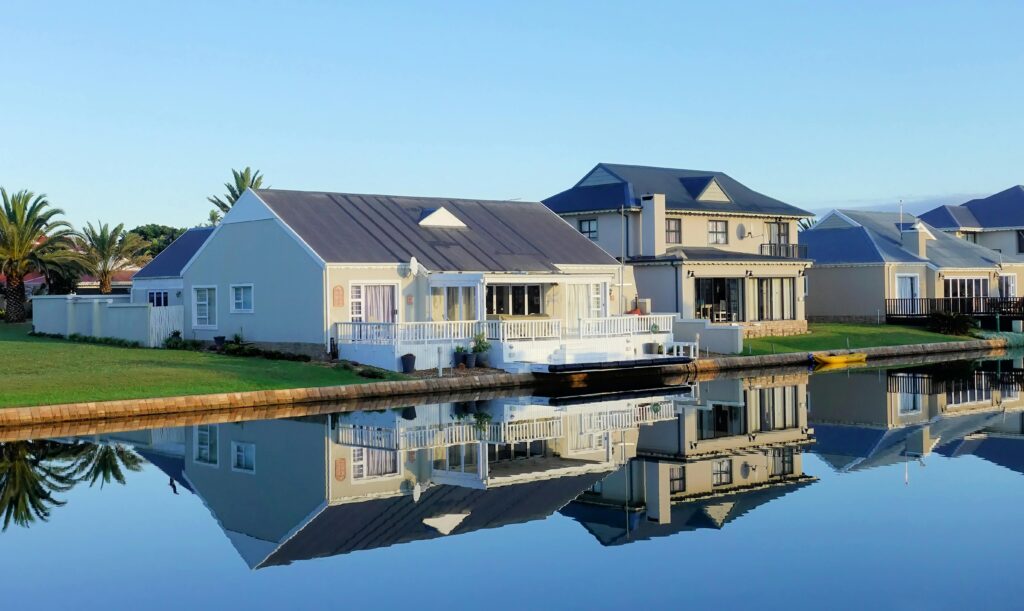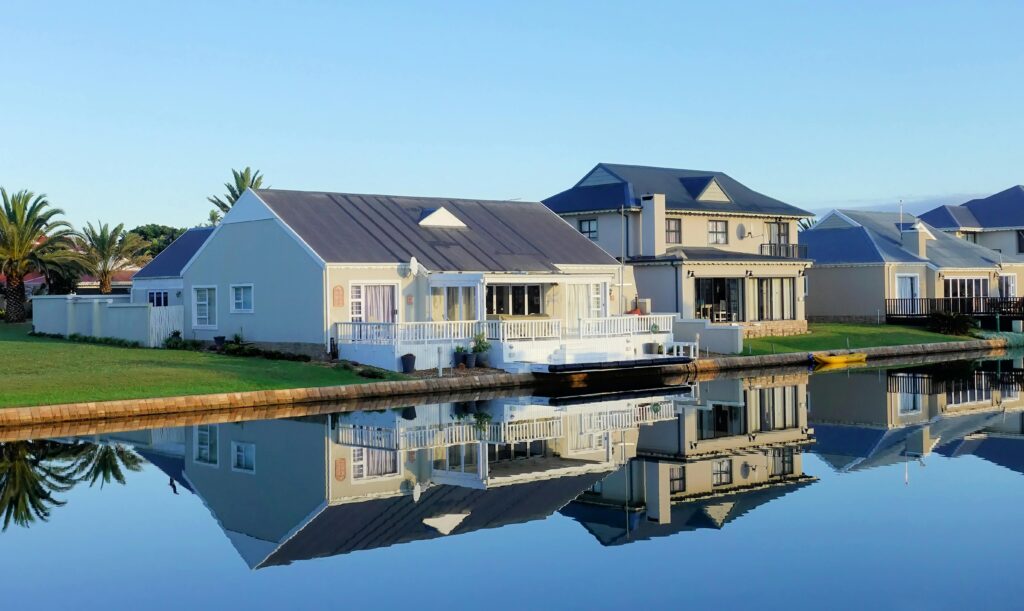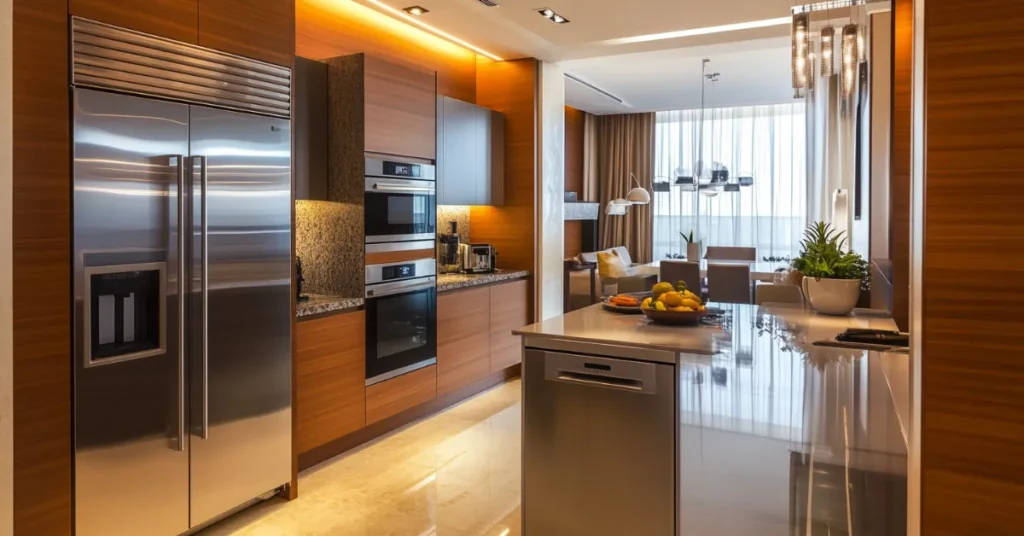What Is Hands-Free Airbnb Automation?
Hands-free Airbnb automation means systematizing every repeatable task in your short-term rental business so your properties run with minimal daily involvement. Instead of manually messaging guests, coordinating cleaners, adjusting prices, and managing check-ins, you deploy software and hardware systems that handle these operations automatically.
Key Takeaways:
- Full Airbnb automation across 7 pillars can reduce hands-on management time by 90%
- The average automated property generates 23% higher revenue through optimized pricing and faster response times
- You can implement a complete automation stack in 30 days following the roadmap in this guide
The reality is harsh: 67% of hosts managing multiple listings burn out within the first year, according to Hostfully’s 2026 State of Vacation Rentals report. The culprit isn’t lack of bookings, it’s operational overwhelm. Hosts who fail to automate spend 25-40 hours weekly on manual tasks that technology can handle in seconds.
I learned this lesson after my third property. At two units, I could manage everything manually. By property five, I was drowning in messages, missed cleaning coordination, and pricing that never optimized. The breakthrough came when I implemented my first automation stack: a property management system connected to smart locks, dynamic pricing software, and automated messaging. Within 30 days, my time investment dropped from 30 hours to 8 hours per week across all five properties.
The hosts who scale successfully, those running 10, 20, or 50+ properties, share one trait: ruthless automation. They’ve replaced themselves in every operational role that doesn’t require human judgment. Automated systems handle guest messaging, check-ins, pricing adjustments, cleaning coordination, and review management while they focus on acquisition, optimization, and strategic growth.
The numbers prove the value. Hosts implementing complete automation save 15-20 hours per week on operations. That time converts into $800-$1,000 in opportunity cost weekly if you value your time at $50/hour. More importantly, automation eliminates the bottleneck that prevents most hosts from scaling beyond 3-5 properties. The goal isn’t to remove yourself entirely, it’s to create systems that allow you to run 10+ properties while spending less than 5 hours weekly on day-to-day operations.
This guide breaks down the seven core automation systems every serious host needs, compares the leading tools, and provides a 30-day implementation roadmap based on what’s actually worked across our portfolio of 50+ premium properties.
The 7 Core Automation Systems Every Host Needs
1. Guest Communication Automation
Guest communication consumes more host time than any other activity. The average host fields 15-25 messages per booking, with inquiries arriving before, during, and after stays. Multiply that across multiple properties and you’re spending 5-8 hours weekly just responding to repetitive questions about WiFi passwords, check-in instructions, and local recommendations.
Communication automation uses pre-written templates triggered by specific booking events. When a guest books, they automatically receive a welcome message. Three days before check-in, they get detailed arrival instructions. On check-in day, they receive the door code and WiFi credentials. During their stay, you can schedule local recommendations and house rules reminders. After checkout, an automated review request goes out.
Modern systems like Hospitable and Guesty now include AI-assisted replies that draft responses to guest questions based on your property information and past conversations. The AI generates 80% of the reply; you review and send in seconds rather than typing from scratch.
The time savings are dramatic. Hosts implementing message automation report saving 5-7 hours weekly on communication. More importantly, response times drop from 2-4 hours to under 30 minutes, which directly improves your Airbnb search ranking and Superhost status eligibility.
The key is building a complete template library covering every common scenario: booking confirmations, check-in instructions, WiFi/parking details, local recommendations, early check-in requests, late checkout requests, noise complaints, maintenance issues, checkout reminders, and review requests. Invest 3-4 hours upfront building these templates and you’ll save 200+ hours annually.
2. Smart Lock & Keyless Entry
Physical key exchanges are the biggest operational bottleneck in short-term rentals. Meeting guests for check-in or coordinating key pickups consumes 1-3 hours per booking when factoring in scheduling, travel time, and waiting for late arrivals. Smart locks eliminate this entirely while improving security and guest experience.
August WiFi Smart Lock ($280) is the most popular choice for hosts with existing deadbolts because it installs on the interior side without replacing your exterior hardware. Schlage Encode Plus ($370) offers the most strong integration with property management systems and works offline if WiFi fails. Yale Assure Lock 2 ($280) provides the sleekest design and quietest operation, ideal for luxury properties where aesthetics matter.
Smart locks integrate with your property management system to automatically generate unique access codes for each reservation. The code activates at check-in time and deactivates at checkout, preventing early arrivals or guests overstaying. You can also create permanent codes for cleaners, maintenance staff, and yourself while tracking who enters and when.
I’ve installed smart locks on all 50+ properties in our portfolio. The ROI is immediate: 2-3 hours saved per booking on coordination, zero instances of guests locked out due to lost keys, and improved security through access logs that proved invaluable when investigating a damage claim.
The critical factors are battery life (schlage lasts 6-12 months on 4 AA batteries), integration reliability (August sometimes has WiFi connectivity issues), and guest ease of use (keypads are more intuitive than smartphone-based systems for older guests). Budget $250-400 per door and consider it a must-have investment, not an optional upgrade.
3. Dynamic Pricing
Manual pricing is where most hosts leave 20-30% of potential revenue on the table. You set a base rate when listing the property, maybe adjust for holidays, and rarely revisit it. Meanwhile, local demand fluctuates daily based on events, seasonality, competitor pricing, and day-of-week patterns.
Dynamic pricing software analyzes thousands of data points, comparable listings, historical occupancy patterns, local events, booking lead times, and seasonal trends, to automatically adjust your nightly rate. The algorithm increases prices when demand spikes and drops them strategically to capture bookings during slower periods.
PriceLabs ($20/month for up to 10 properties) offers the best balance of affordability and sophistication for growing hosts. Beyond Pricing ($25/month for up to 5 properties) provides slightly more conservative recommendations, ideal for luxury properties where protecting average daily rate matters more than maximizing occupancy. Wheelhouse (free base plan, 1% of revenue for premium) uses machine learning and local market expertise but requires more manual configuration.
I implemented PriceLabs across our portfolio after manually pricing for two years. The results were immediate and shocking: 18% revenue increase in month one without any decrease in occupancy. The algorithm identified patterns I’d missed, Friday and Saturday rates could go 40% higher during summer, Tuesday and Wednesday needed 15% discounts to maintain 80%+ occupancy, and rates could increase 60-80% during local college football games I hadn’t even known about.
The best practice is setting minimum and maximum rate boundaries (don’t let the algorithm price below your breakeven or above what your market supports), enabling last-minute discounts for vacant nights within 3 days of check-in, and implementing orphan day pricing that discounts single-night gaps between bookings.
4. Cleaning & Turnover Management
Cleaning coordination is the second-biggest time sink after guest communication. You need to notify cleaners after each checkout, coordinate timing with check-in schedules, track completion, handle supply restocking, and manage payments. Do this manually across multiple properties and you’re spending 4-6 hours weekly just on logistics.
TurnoverBnB ($49/month unlimited properties) automatically notifies your cleaning team when guests check out, sends them property access codes, tracks task completion through a mobile app, and handles payment through integrated invoicing. Properly ($6/month per property) adds inventory management, allowing cleaners to report low supplies that automatically trigger restock orders. Breezeway (custom pricing for 10+ properties) includes photo documentation requirements, quality checklists, and inspector roles for property managers running larger portfolios.
The automation flow looks like this: Guest checks out, System automatically sends cleaning notification to your preferred cleaner, Cleaner receives access code and checklist – Cleaner completes tasks and uploads photos, System marks property as clean and ready, You receive completion notification with photos. Zero manual coordination required.
I resisted cleaning automation initially because I had reliable cleaners I texted after each booking. But texts get missed, cleaners don’t have consistent access to codes, and tracking completion required constant follow-up. After implementing TurnoverBnB, cleaner no-shows dropped to zero, average turnover time decreased by 45 minutes, and I eliminated 3-4 hours weekly of coordination work.
The critical feature is mobile-first design. Your cleaners need a simple app experience, not desktop software. Also ensure the system allows multiple cleaning teams (you’ll need backups) and tracks historical performance so you can identify chronically late or low-quality cleaners.
5. Channel Management
If you’re only on Airbnb, you’re missing 30-40% of potential bookings. Vrbo attracts older, higher-spending guests for longer stays. Booking.com dominates international markets. Direct bookings through your own website save 15-20% in platform fees.
The problem with listing on multiple platforms is calendar chaos. A guest books on Airbnb, you manually block dates on Vrbo and Booking.com, but you miss one day or enter dates incorrectly and get a double-booking. Now you’re either canceling a reservation (destroying your Superhost status) or scrambling to find alternative accommodation (costing hundreds of dollars).
Channel managers sync your calendar in real-time across all platforms. When a booking comes through any channel, all other calendars automatically block those dates within seconds. The systems also sync pricing, minimum stay requirements, property descriptions, and house rules so you maintain consistency without manual updates.
Hostaway (starting at custom pricing) connects to 300+ booking channels and includes a website builder for direct bookings. Guesty (custom pricing for 50+ properties) offers the most strong channel management for enterprise portfolios. Most property management systems like Hospitable include basic channel management for Airbnb, Vrbo, and Booking.com.
I added Vrbo to our properties after implementing channel management and saw immediate results: 25% of bookings now come from Vrbo, average booking length increased from 3.2 to 4.7 nights (Vrbo guests stay longer), and average daily rate increased by $15 because Vrbo attracts less price-sensitive guests.
The requirement is two-way synchronization. Some basic systems only push Airbnb bookings to other platforms but don’t pull bookings from other platforms back to Airbnb. You need bidirectional, real-time syncing to prevent double-bookings.
6. Review & Reputation Management
Reviews directly determine your search ranking, which controls 60-80% of your booking volume. Properties with 4.9+ ratings and 25+ reviews rank in top search positions; properties below 4.7 appear on page 3-4 where almost nobody books.
The problem is human nature: satisfied guests don’t think to leave reviews, while unhappy guests proactively write negative reviews. Without systematic review requests, you’ll get 20-30% review rates skewed toward negative experiences.
Review automation solves this by automatically sending review requests 24 hours after checkout, the optimal timing when experiences are fresh but guests have returned home and can write thoughtfully. The systems also notify you immediately when reviews are posted so you can respond quickly, response rate and speed are ranking factors on most platforms.
Templates matter enormously. Generic “please leave us a review” messages get ignored. Effective templates thank guests specifically, mention something personal from their stay, and include a direct link to the review page with clear instructions. I’ve tested dozens of templates; the highest-performing version (42% review rate) thanks guests by name, references their specific reason for visiting, and includes a single-sentence review prompt: “If you enjoyed your stay, we’d be grateful if you’d share your experience with future guests.”
The advanced strategy is review monitoring that alerts you to negative reviews before they’re published. Airbnb allows 14 days for hosts to respond before reviews become public. Properties using review monitoring that catches negative reviews on day 1-2 have 3-4 days to resolve issues directly with guests, potentially convincing them to revise reviews before publication.
7. Financial Tracking & Reporting
Most hosts use spreadsheets to track income and expenses, leading to incomplete records, missed tax deductions, and zero real-time profitability insights. You don’t know which properties are actually profitable after all expenses until tax season when it’s too late to adjust.
Automated financial tracking connects to your bank accounts and credit cards to automatically categorize transactions. Booking income is recorded, cleaning expenses are tracked, utility bills are logged, and supply purchases are categorized. The systems generate profit and loss statements per property, calculate owner distributions, and prepare year-end tax summaries.
OwnerRez ($40/month for unlimited properties) includes complete financial tracking with owner statements for properties you co-host or rent through rental arbitrage. Hospitable integrates with QuickBooks for automated accounting. Guesty includes financial reporting with multi-currency support for international portfolios.
The killer feature is automatic expense allocation. When you buy $80 of supplies at Costco for multiple properties, the system lets you split the expense proportionally across properties rather than manually calculating and entering separate transactions.
I spent 4-6 hours monthly on financial tracking before automation. Now I spend 30 minutes monthly reviewing auto-categorized transactions and exporting reports. More importantly, I have real-time visibility into per-property profitability, allowing me to identify underperforming units and make data-driven decisions about which properties to renew and which to exit.
Airbnb Automation Tools Comparison (2026)
| Tool | Starting Price | Best For | Properties | Key Features | Integrations | Free Trial |
|---|---|---|---|---|---|---|
| Hospitable | $29/mo | Beginners (1-5) | 1-99 | Auto-messaging, templates, unified inbox, basic scheduling | 30+ (Airbnb, Vrbo, Booking.com, smart locks) | 14 days |
| Guesty | Custom quote | Enterprise (50+) | Unlimited | Full PMS, API access, multi-user teams, white label | 200+ (all major OTAs, accounting, CRM) | Demo only |
| Hostaway | Custom quote | Growing (10-50) | Unlimited | Channel manager, website builder, payment processing | 300+ (most complete integrations) | Demo only |
| iGMS | $20/mo | Budget-conscious | 1-100 | Multi-calendar, automation rules, team collaboration | 50+ (major OTAs, smart locks, pricing tools) | 14 days |
| Hostfully | $119/mo | Mid-size (5-20) | Unlimited | Digital guidebooks, PMS, direct booking site | 40+ (OTAs, smart locks, cleaning tools) | 14 days |
| Turno | $8/listing/mo | Cleaning-focused | Unlimited | Cleaner marketplace, auto-scheduling, photo verification | 20+ (PMS systems, calendars) | Free plan available |
| Breezeway | Custom quote | Operations (10+) | Unlimited | Task management, inspections, maintenance tracking | 30+ (PMS, smart home, accounting) | Demo only |
| OwnerRez | $40/mo | Direct bookings | Unlimited | Website builder, booking engine, owner statements | 25+ (OTAs, payment processors) | 14 days |
Which Tool Is Right for You?
1-3 properties: Hospitable ($29-59/month)
Start here if you’re managing 1-3 properties and want to eliminate the most time-consuming tasks without complex configuration. Hospitable handles automated messaging, basic channel management (Airbnb + Vrbo + Booking.com), and simple scheduling. The interface is intuitive enough to set up in an afternoon. You’ll save 8-12 hours weekly on guest communication and calendar management for under $60/month.
The limitation is sophistication. You don’t get advanced automation rules, strong financial tracking, or enterprise features you won’t need yet. But that’s the point: simple, affordable, and immediately effective for hosts just starting to scale.
4-10 properties: iGMS ($20-80/month) or Hostfully ($119-200/month)
Once you cross 4-5 properties, you need more powerful automation and team features. IGMS offers the most affordable option with multi-user access (critical when you hire a virtual assistant), automation rules beyond basic templates, and better reporting. The tradeoff is a steeper learning curve and less polished interface.
Hostfully costs more but includes professional digital guidebooks that significantly improve guest experience and reduce support messages. Their direct booking website builder is also more sophisticated, important if you’re serious about capturing direct bookings to avoid OTA fees.
Choose iGMS if you’re budget-conscious and comfortable with technology. Choose Hostfully if you’re prioritizing guest experience and direct booking revenue over monthly savings.
11-50 properties: Hostaway ($200-500/month estimated)
At this scale, channel management becomes critical. You need your properties on Airbnb, Vrbo, Booking.com, and ideally 2-3 international platforms. Hostaway provides the most complete channel management (300+ integrations) and includes a customizable website builder for direct bookings.
The platform also supports multiple user roles (cleaners, maintenance, co-hosts) with permission controls, important when you’re building an operational team. The reporting is sophisticated enough to track performance per property, per channel, and per team member.
Pricing is custom based on property count and features, but expect $200-500/month for 11-50 properties. This sounds expensive until you realize it replaces 3-4 separate tools you’d otherwise need: channel manager + messaging automation + cleaning coordination + direct booking site.
50+ properties: Guesty (custom pricing, $1,000-5,000/month estimated)
Enterprise portfolios need Guesty’s enterprise features: API access for custom integrations, white-label options for property management companies operating under their own brand, multi-currency support for international portfolios, and advanced financial features including owner distribution calculations.
The platform is overkill and overpriced for smaller portfolios, but at 50+ properties it’s the only system strong enough to handle complexity without constant manual workarounds. Most property management companies running 100-1,000+ units use Guesty.
The pricing conversation happens through demos and is customized based on property count, feature requirements, and negotiation. Expect $1,000-5,000/month, which at 50 properties is $20-100 per property, affordable when those properties generate $150,000-500,000 in annual revenue.
Manual vs. Automated: Side-by-Side Comparison
| Task | Manual Process | Automated Process | Time Saved |
|---|---|---|---|
| Guest messaging | Check inbox every 1-2 hours, read messages, type responses, remember to send check-in details, follow up with review requests | Pre-written templates auto-send based on booking events; AI drafts responses to questions; unified inbox shows all platforms | 5-7 hrs/week |
| Check-in | Coordinate meeting time, drive to property, meet guest, explain entry/WiFi/parking, hand over keys, answer questions | Smart lock generates unique code; automated message sends instructions 24hrs before arrival; guests self check-in | 2-3 hrs/week |
| Pricing | Check competitors 2-3x weekly, manually adjust rates, research local events, adjust for seasonality, miss optimization opportunities | Dynamic pricing algorithm runs 24/7, analyzes thousands of data points, auto-adjusts rates daily, optimizes for revenue and occupancy | 3-4 hrs/week |
| Cleaning coordination | Text or call cleaner after each checkout, confirm they’re available, send access instructions, follow up to confirm completion, coordinate payment | Auto-notification sent on checkout, cleaner receives access code through app, uploads completion photos, system tracks payment | 2-3 hrs/week |
| Reviews | Remember to write reviews for guests, draft personalized message, remember to request reviews, follow up with guests who don’t leave reviews | Auto-request sent 24 hours post-checkout with personalized template; alerts when reviews posted; draft responses provided | 1-2 hrs/week |
| Calendar sync | Manually block dates across Airbnb/Vrbo/Booking.com after each booking, double-check all platforms, constantly monitor for conflicts | Real-time 2-way calendar sync across all platforms; bookings automatically block dates everywhere within seconds | 2-3 hrs/week |
| Total | 25-35 hrs/week | 5-8 hrs/week | 15-25 hrs/week |
The comparison reveals why hosts who refuse to automate cannot scale beyond 3-5 properties. At 25-35 hours weekly managing properties manually, each property consumes 5-7 hours of your time. Add a sixth property and you’re working 42 hours weekly just on operations, with zero time for acquisition, optimization, or strategic growth.
Automation doesn’t eliminate work. It eliminates repetitive, low-value work that doesn’t require human judgment. You still need to respond to unique guest questions, handle maintenance emergencies, and optimize listings. But you eliminate the 80% of tasks that consume time without adding value.
Step-by-Step Automation Setup (First 30 Days)
Week 1: Smart Locks + Automated Messaging
Day 1-3: Smart lock installation
Order smart locks (August, Schlage, or Yale based on your preference) and install on all properties. If you’re not comfortable with basic deadbolt replacement, hire a handyman, installation takes 15-30 minutes per door. Test each lock thoroughly: verify battery operation, confirm WiFi connectivity, generate test codes and ensure they work.
Day 4-5: Property management system setup
Sign up for your chosen PMS (Hospitable recommended for beginners). Connect your Airbnb account through API integration. Import all existing properties and reservations. The system will pull guest information, booking dates, and property details automatically.
Day 6-7: Message template creation
Build templates for every common scenario. Start with these eight essential templates:
- Booking confirmation (sent immediately after booking)
- Pre-arrival message (sent 3 days before check-in with what to expect)
- Check-in instructions (sent 24 hours before arrival with door code and WiFi)
- Welcome message (sent on check-in day)
- Mid-stay check-in (sent day 2 for stays 3+ nights)
- Checkout reminder (sent morning of checkout with instructions)
- Post-checkout thank you + review request (sent 24 hours after departure)
- Emergency contact (template for guests reporting urgent issues)
Spend time personalizing these, generic templates feel impersonal and reduce guest satisfaction. Include specific property details, local recommendations, and your personal hosting philosophy.
Expected outcome: 5-7 hours weekly saved on communication and check-in coordination.
Week 2: Dynamic Pricing + Channel Manager
Day 8-10: Dynamic pricing implementation
Sign up for PriceLabs, Beyond Pricing, or Wheelhouse. Connect your properties through calendar integration. Set pricing boundaries: minimum rate (your breakeven), maximum rate (what your market supports), and occupancy goals (typically 75-85% for revenue optimization).
Enable these key features: last-minute discounts (reduce rates for bookings within 3 days of check-in), orphan day pricing (discount single-night gaps between bookings), and seasonal adjustments (higher rates summer/holidays, lower rates off-season).
Review the suggested prices for the next 60 days. The algorithm needs 3-4 weeks to learn your market, so don’t panic if initial suggestions seem aggressive or conservative. Make manual adjustments for known events (local festivals, conferences, holidays) the algorithm might miss.
Day 11-14: Channel manager setup
If your PMS includes channel management (most do), connect to Vrbo and Booking.com. Export your Airbnb listing description, photos, and house rules, then import to other platforms to maintain consistency.
Set platform-specific rules: Vrbo guests typically book 45-90 days in advance and prefer 5-7 night minimums, while Airbnb guests book 7-30 days out and accept 2-3 night minimums. Adjust minimum stay requirements per platform.
Test the calendar sync: create a test booking on Airbnb and verify the dates block on Vrbo and Booking.com within 60 seconds. If sync fails, troubleshoot the API connection immediately, calendar sync failures cause expensive double-bookings.
Expected outcome: 10-30% revenue increase from dynamic pricing; 3-4 hours weekly saved on pricing management; 25-40% booking volume increase from multi-channel exposure.
Week 3: Cleaning Automation + Review System
Day 15-17: Cleaning automation setup
Sign up for TurnoverBnB, Properly, or integrate cleaning management into your existing PMS. Add your cleaning team members with their contact information and property access levels.
Configure automation rules: notify cleaners immediately when guests check out, send them the smart lock access code, require photo uploads of completed tasks (made beds, stocked supplies, cleaned bathrooms), and mark properties as “clean and ready” only after photo verification.
Set up your cleaning checklist, bedroom tasks, bathroom tasks, kitchen tasks, living areas, exterior/entry. Be specific: “Strip beds and wash linens” not just “clean bedroom.” Your cleaners need clear expectations, especially when working without supervision.
Day 18-21: Review automation
Build your review request template. The highest-performing format: “Hi [Guest Name], thank you for staying at [Property Name]! We hope you enjoyed [specific element of their stay]. If you had a great experience, we’d be grateful if you’d share it with future guests. [Direct review link]. Thank you for being a wonderful guest!”
Configure the automation to send 24 hours after checkout. This timing is optimal, immediate enough that experiences are fresh, delayed enough that guests are home and can write thoughtfully.
Set up review response templates for common themes: guests who mention cleanliness, guests who loved the location, guests who had minor issues, and guests who leave critical reviews. Having pre-written frameworks lets you respond within 1-2 hours instead of 12-24 hours.
Expected outcome: 2-3 hours weekly saved on cleaning coordination; 15-25% increase in review rate; 0.1-0.3 point rating improvement from faster review response and happier guests.
Week 4: Financial Tracking + Optimization
Day 22-24: Financial system setup
If your PMS includes financial tracking, enable it and connect your bank accounts. If not, sign up for dedicated property accounting software like OwnerRez or integrate with QuickBooks.
Create expense categories: cleaning, supplies, utilities, maintenance, mortgage/rent, insurance, HOA fees, platform fees, marketing, and software tools. Set up automatic categorization rules so transactions from known vendors (your cleaner’s Venmo, your cleaning supply store) automatically categorize without manual review.
Day 25-27: Historical data entry
Import your historical data from the past 12 months. This is tedious but essential. You need baseline data to understand profitability trends and identify seasonal patterns.
Generate your first profit and loss report per property. You’re looking for: total revenue, total expenses, net profit, profit margin percentage, and revenue per available night. Properties with profit margins below 30% need optimization; properties above 50% are performing excellently.
Day 28-30: Optimization and monitoring
Review your automation performance from weeks 1-3. Check these metrics:
- Message response time (should be under 1 hour average)
- Cleaner completion rate (should be 95%+ on-time)
- Review rate (should be 35-50%)
- Revenue change week-over-week (should increase 5-15% after dynamic pricing)
- Time spent on operations (should decrease 50-70%)
Adjust underperforming systems. If review rates are low, revise templates. If cleaners are frequently late, add backup cleaners. If dynamic pricing is too aggressive (occupancy dropping below 70%), adjust your base rates.
Expected outcome: Complete visibility into per-property profitability; 1-2 hours weekly saved on financial tracking; data-driven optimization decisions.
ROI of Automation: The Numbers
The investment in automation tools ranges from $100-300 monthly for most hosts managing 5-15 properties. Let’s calculate the actual return on that investment across five dimensions:
Time savings: 15-20 hours weekly
You’re eliminating 15-20 hours of weekly work on communication, coordination, pricing, and tracking. If you value your time at $50/hour (a conservative estimate for skilled professionals), that’s $750-$1,000 weekly in opportunity cost savings, $3,000-$4,000 monthly.
Even if you’re not billing hourly, this time converts into strategic activities: acquiring new properties, optimizing existing listings, building direct booking channels, or actually enjoying the passive income you built this business to create.
Revenue increase: 10-30% from dynamic pricing
Dynamic pricing alone increases revenue 10-30% by optimizing rates daily. On a property generating $3,000 monthly, that’s $300-$900 in additional monthly revenue. Across five properties, that’s $1,500-$4,500 monthly.
The increase comes from two sources: higher rates during peak demand periods (weekends, holidays, events) and strategic discounts during low demand that capture bookings you’d otherwise miss.
Reduced double-booking penalties: $500-2,000 saved
A single double-booking costs $500-2,000 when factoring in cancellation penalties, guest compensation, and emergency accommodation costs. Channel management eliminates this risk entirely.
Most hosts managing multiple platforms manually experience 1-3 double-bookings yearly. Even at the low end ($500 x 1 occurrence), eliminating this risk saves $500 annually. At the realistic estimate (2 double-bookings at $1,000 each), you save $2,000 yearly.
Review score improvement: 15-25% higher occupancy
Automated review requests increase review rates from 20-25% to 40-50%, giving you more reviews faster. Review automation also reduces response time from 12-24 hours to 1-2 hours, which guests notice and appreciate.
The combination typically improves overall ratings by 0.1-0.3 points over 6 months. A property moving from 4.6 to 4.8 stars sees 15-25% higher booking volume as it climbs search rankings. On a property generating $3,000 monthly, that’s $450-$750 additional monthly revenue.
Reduced cancellations: 5-10% fewer cancellations
Smart locks and clear automated instructions reduce guest cancellations caused by confusion or difficulty accessing properties. The data shows properties with automated check-in processes experience 5-10% fewer last-minute cancellations.
On a property with 30 bookings annually, preventing even 2-3 cancellations (worth $400-600 each) saves $800-$1,800 in lost revenue annually.
Total monthly ROI calculation:
- Time value: $3,000-$4,000
- Revenue increase: $1,500-$4,500 (5 properties)
- Double-booking prevention: $40-165/month annualized
- Review improvement: $450-$750/month (per property)
- Cancellation reduction: $65-150/month annualized
Total: $5,055-$9,565 monthly benefit
Against $100-300 monthly tool costs, you’re looking at 17-95x return on investment in the first year. Even at the conservative end (17x ROI), every dollar spent on automation returns $17 in value.
The payback period is immediate. You see time savings within 7 days and revenue increases within 30 days. This isn’t a multi-year infrastructure investment; it’s a high-return operational improvement that pays for itself in the first month.
Advanced Automation Strategies
Direct Booking Website
OTA fees eat 15-20% of revenue on every booking. Airbnb charges 3% host fees plus 14-16% guest fees; Vrbo charges 8-10% host fees or 10-15% combined booking fees. On a $2,000 booking, you’re paying $300-400 to the platform.
Building a direct booking website eliminates these fees entirely. Tools like Hostaway, OwnerRez, and Lodgify include website builders optimized for conversions. You control the guest experience, own the customer relationship, and keep 100% of booking revenue minus 2-3% payment processing fees.
The strategy requires marketing investment. Your website doesn’t have Airbnb’s organic traffic. But returning guests, referrals, and local marketing drive significant direct booking volume. Hosts with mature direct booking channels report 20-40% of bookings come direct, saving $8,000-$15,000 annually per $100,000 in revenue.
Noise Monitoring
Party prevention is essential for maintaining property condition, neighbor relationships, and avoiding regulatory issues. Traditional security cameras raise privacy concerns and require constant monitoring.
Noise monitoring devices like NoiseAware ($299 device + $10/month) and Minut ($149 device + $10/month) detect noise levels, occupancy, and motion without recording audio or video. When noise exceeds thresholds (typically 65-75 decibels), you receive instant alerts and can message guests immediately.
I’ve installed NoiseAware devices on every property after a $8,000 party damage incident. The system has prevented 15-20 potential parties by catching excessive noise early enough to intervene. The $299 upfront investment per property pays for itself by preventing a single damage incident.
Guest Screening
Airbnb’s built-in verification is minimal, basically confirming ID and payment method. Third-party screening like Autohost and Safely performs deeper background checks, scanning for eviction records, fraud indicators, and past guest violations.
The systems automatically screen every booking and flag high-risk reservations. You can then implement additional verification (require a call with the guest, request security deposit, or decline the booking if extremely high-risk).
This reduces property damage by 30-50% according to property managers implementing screening. The cost is $1-3 per booking, which pays for itself by preventing a single damage or fraudulent chargeback.
Smart Thermostats
Heating and cooling are your largest utility expenses, often $100-300 monthly per property. Guests frequently leave HVAC running at extreme temperatures or forget to adjust when leaving for the day.
Smart thermostats like Ecobee ($189) and Nest ($249) allow remote temperature monitoring and automatic scheduling. Set temperatures to economical levels between bookings and during daytime hours when guests are typically out exploring.
The systems also detect when properties are unexpectedly occupied, a potential unauthorized sublet or squatter situation. I’ve used thermostat data twice to identify guests who extended stays without permission.
Hosts implementing smart thermostats report 20-35% utility cost reductions, typically saving $30-100 monthly per property. At $189-249 upfront cost, payback period is 2-8 months.
API Integrations and Custom Workflows
Most automation platforms offer API access (application programming interface), allowing technical hosts to build custom integrations and workflows that fit their exact processes.
Examples from our portfolio:
- Zapier integration that adds new guests to a CRM for post-stay marketing
- Custom webhook that notifies our maintenance team when specific damage keywords appear in guest messages (“broken,” “leaking,” “not working”)
- Integration with our acquisition spreadsheet that automatically pulls occupancy and revenue data for properties we’re considering adding to the portfolio
- Custom reporting dashboard pulling data from PMS, pricing tools, and accounting software into a single view
You need basic technical knowledge or a developer to implement custom automation, but the value is significant if your portfolio has unique processes that standard tools don’t handle perfectly.
Common Automation Mistakes to Avoid
Over-automating guest communication
The biggest mistake new automation users make is automating everything, removing all personal touch from guest interactions. Guests can tell when they’re receiving template messages, and it degrades their experience.
The right balance: automate the logistical messages (booking confirmation, check-in instructions, checkout reminder) but personally respond to questions, concerns, and special requests. Use AI-assisted drafts for speed, but review and personalize every response.
I learned this after a guest left a review saying “felt very impersonal and robotic.” I reviewed our message history and realized every single message was an automated template. Now we use templates for logistics but personally welcome every guest within 2 hours of booking, mention specific details from their profile or booking message, and personally respond to all questions. Review scores improved by 0.2 points after this adjustment.
Failing to customize templates
Default templates from automation platforms are generic and obvious. “Dear Guest, welcome to our property. Here are the check-in instructions…” sounds like a form letter.
Effective templates include property-specific details, your personality, and relevant personalization tokens. Compare these two check-in messages:
Generic: “Dear Guest, check-in is at 3pm. The door code is 1234. WiFi password is guest123. Let us know if you need anything.”
Personalized: “Hi Sarah! We’re excited to host you and Mike for your anniversary trip. Check-in is 3pm, the front door code is 1234 (it’ll work starting at 2:45pm if you arrive a bit early). WiFi: AtlantaLoft_5G password: Peach2024! I’ve left restaurant recommendations for romantic spots nearby on the kitchen counter. Enjoy your stay!”
The personalized version takes 45 seconds longer to write once, then automatically includes the guest’s name, booking reason, and special details every time. It drastically improves guest perception while taking no additional time per booking.
Setting dynamic pricing without boundaries
Dynamic pricing algorithms are powerful but can make mistakes, especially during their learning period or around unusual local events. If you don’t set minimum and maximum price boundaries, algorithms might price your $150/night property at $80 (losing money) or $350 (no bookings) based on flawed data.
Always set these boundaries:
- Minimum rate: Your breakeven or slightly above (never lose money)
- Maximum rate: 1.5-2x your average rate (higher for major events, but not so high you price yourself out)
- Minimum stay during peak seasons: 3-5 nights to reduce turnover costs
- Last-minute discount limits: Don’t discount more than 20% even for last-minute bookings
Review algorithm suggestions weekly for the first month, then monthly ongoing. When you notice prices that seem wrong, investigate whether the algorithm has data you’re missing (a local event you didn’t know about) or is making an error that needs correction.
Ignoring cleaner feedback
Your cleaners see problems you don’t: maintenance issues, guest damage, supply shortages, and ways your automation makes their job harder. But if your automation system creates a wall between you and cleaners, you never hear this feedback.
Build regular check-ins with your cleaning team into your schedule. Monthly calls or quarterly in-person meetings help you understand how automation is affecting their workflow and what issues they’re catching.
I added a “cleaner notes” field to our turnover system after a cleaner mentioned noticing multiple small issues she didn’t think were worth bothering me about, leaking faucets, loose door handles, burnt-out bulbs. Those small issues compound into big problems if never fixed. Now cleaners log every issue, no matter how minor, and we address them during preventive maintenance visits.
Neglecting system monitoring
Automation doesn’t mean “set it and forget it.” Systems break: smart locks lose WiFi connection, calendar syncs fail, message templates don’t send, and pricing tools make errors.
Schedule weekly system checks:
- Review all automated messages sent in past 7 days (spot-check for sending failures)
- Check calendar sync across all platforms (verify bookings appear everywhere)
- Review cleaner completion rates (identify late or missed turnovers)
- Verify pricing looks reasonable for next 30 days
- Check smart lock battery levels (replace before they die)
These checks take 15-20 minutes weekly and prevent catastrophic failures. I once caught a calendar sync failure 4 hours before it would have caused a double-booking, only because weekly monitoring showed a Vrbo booking that wasn’t appearing in my master calendar.
Choosing tools based on price alone
The cheapest automation tool costs you more in the long run if it lacks critical features, integrates poorly, or requires constant manual workarounds. A $20/month tool that saves 10 hours weekly is dramatically better than a $5/month tool that saves 3 hours weekly.
Evaluate tools on these factors in order of importance:
- Time saved: How much manual work does this eliminate?
- Reliability: Do other hosts report frequent bugs or failures?
- Integration: Does it connect to your existing systems?
- Scalability: Will it still work when you have 2x or 5x more properties?
- Support: Can you get help quickly when something breaks?
- Price: Is the cost justified by the value delivered?
Price should be the last factor, not the first. The difference between a $30/month tool and a $60/month tool is $360 annually, less than the value of a single additional booking that better automation helps capture.
Frequently Asked Questions
How much does full automation cost monthly?
For a 5-property portfolio, expect $100-200 monthly total across all tools: property management system ($30-80), dynamic pricing ($20-40), smart lock monitoring ($0-50), cleaning automation ($10-50, or included in PMS), and ancillary tools. As you scale, many tools have volume pricing, so 10-15 properties might cost $200-350 monthly total.
The cost is $20-40 per property monthly, tiny compared to the $500-2,000 those properties generate monthly in profit. The ROI is immediate and substantial, as outlined in the ROI section.
What’s the best automation tool for complete beginners?
Hospitable at $29/month for up to 2 properties. It handles the highest-value automations (messaging and calendar management) with the easiest setup process. You’ll have core automation running within a few hours of starting your free trial.
Once you’re comfortable with Hospitable and ready to add dynamic pricing or more sophisticated features, you can upgrade to their higher tiers or migrate to more powerful platforms like Hostfully or Hostaway.
Can I automate everything or do I still need human involvement?
You still need human involvement for anything requiring judgment, creativity, or empathy: responding to complex guest questions, handling maintenance emergencies, optimizing listing photos and descriptions, making acquisition decisions, and personally addressing guest complaints or issues.
The goal is automating repetitive, predictable tasks (check-in instructions, price adjustments, cleaner coordination) so you have time and energy for high-value activities that actually require your skills and expertise.
Think of automation as eliminating 70-80% of your operational work, the routine stuff, so you can focus the remaining 20-30% on activities that actually move your business forward.
Do I still need a cleaner if I automate cleaning coordination?
Yes, automation coordinates with your cleaners; it doesn’t replace them. TurnoverBnB and similar tools notify cleaners when cleaning is needed, send access codes, and track completion. But actual cleaning still requires a human (until robot cleaners become reliable, which won’t happen for years).
The time savings comes from eliminating coordination work: texting cleaners, confirming their availability, coordinating codes, tracking completion, and managing payment. Automation handles all the logistics while cleaners handle the physical work.
What’s the most reliable smart lock brand for Airbnb?
Schlage Encode Plus ($370) is the most reliable based on our experience across 50+ properties. It’s survived the longest without failures, has the fewest WiFi connectivity issues, and integrates reliably with major PMS platforms.
August WiFi Smart Lock ($280) is the most popular among hosts because it’s cheaper and installs without replacing exterior hardware. But I’ve had more connectivity and battery issues with August. For premium properties where reliability matters most, pay the extra $90 for Schlage.
Yale Assure Lock 2 ($280) is the best aesthetically. It looks most like high-end hotel door locks. But integration with PMS platforms isn’t quite as strong as Schlage.
How long does it take to fully set up automation?
Following the 30-day implementation plan in this guide, you’ll have complete automation running within a month. But you’ll see immediate results: messaging automation saves time starting day 1, smart locks eliminate key exchanges immediately, and dynamic pricing begins optimizing within 72 hours of setup.
The timeline assumes you’re spending 2-4 hours weekly on setup tasks. If you’re motivated and have a few full days to dedicate, you could complete the entire setup in 5-7 days of focused work.
The key is not rushing, implement systems properly, test them thoroughly, and train your team (cleaners, co-hosts) on how to use them. Rushing through setup leads to misconfigured systems that create more problems than they solve.
Will automation hurt the guest experience?
Only if you over-automate or use generic templates. Automation actually improves guest experience when implemented correctly: guests receive check-in instructions exactly when needed, door codes work perfectly every time, pricing is fair and competitive, properties are consistently clean, and hosts respond quickly because they’re not buried in routine messages.
The guests who complain about automation are reacting to hosts who automate everything including personal interactions. If every message is obviously a template and guests never feel a human is paying attention, experience suffers.
The solution: automate logistics, personalize interactions. Use templates for check-in instructions, but personally welcome guests. Automate pricing, but personally respond when guests message with questions or concerns.
Is automation worth it if I only have one property?
If you’re treating Airbnb as a side income and manage one property casually, automation might be overkill. But if you’re building a business, planning to acquire more properties, optimizing for maximum profit, or valuing your time, automation is worth it even for one property.
One property still requires 5-8 hours weekly of manual work: messaging guests, coordinating cleaning, adjusting prices, tracking finances. Automation reduces that to 1-2 hours weekly for $30-60/month. Even at the conservative time savings (3 hours weekly saved), that’s $150-200 monthly value at $50/hour, 3-6x return on your tool investment.
Plus, you’re building systems that will scale. When you add property 2 and 3, you won’t need to rebuild everything from scratch. The systems, templates, and processes are already proven and ready to replicate.
Curious how other hosts have implemented these automation strategies? Check out real student results from 10XBNB members who have built hands-free rental businesses using these exact systems.













